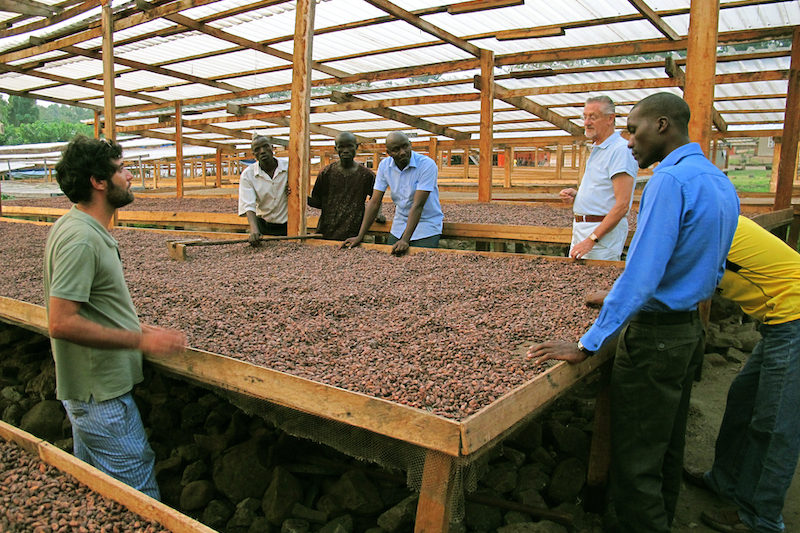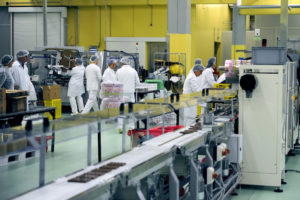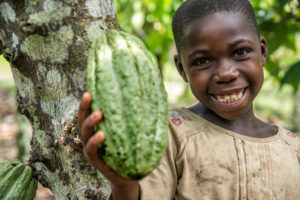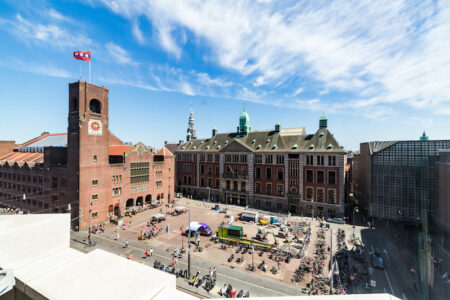Behind the scenes: Italian chocolate business ICAM celebrates 75th anniversary

As Italian-founded ICAM celebrates a major confectionery manufacturing milestone of 75 years, we speak to vice president Plinio Agostoni on its pandemic challenges and hopes for the future. Neill Barston reports.
Marking 75 years in industry amid particularly testing conditions brought about by the coronavirus pandemic, has made ICAM’s achievements all the more notable. The Italian founded chocolate business specialising in commercial production of organic, Fairtrade and semi-finished cocoa products has established a strong reputation across the industry.
As its appearance at this year’s virtual World Confectionery Conference revealed, the company has shown a strong sense of resilience in challenging times (see our exclusive video interview with the business here).
To its credit, the firm founded in the 1940s by Silvio Agostoni and his brothers-in-law Giancarlo and Urbano Vanini, was created on a principle of being self-sufficient and fostering direct relationships with its entire supply chain. This proactive approach to sector sustainability has informed the company’s work across the decades, in forging strong, ethically responsible links with cocoa supply nations including Dominican Republic, Uganda and Peru.
It has grown hugely from its humble origins amid the Second World War, when Agostoni initially took over a workshop in Morbegno, northern Italy, dedicated to the production of sweets. By 1946, the business established a production site and headquarters in Lecco, buying its first cocoa processing machines that would pave the way for its development as a global enterprise.
As the firm gradually expanded its interests over the decades, it now employs a total of 400 people, exporting its products across its global operations, which includes a presence in 69 countries. For the past six years, it has increased its scope further in delivering its own luxury branded chocolate under the Vanini label within Italy and further afield.

As its vice president, Plinio Agostoni, spoke exclusively to Confectionery Production on some of the challenges faced by the business, as it navigates the logistics and trading issues that have impacted on economies around the world. Remarkably, as he revealed, despite the backdrop of the pandemic, the company in fact increased its turnover volume to more than €170 million, which he praised its workforce for.
“It was my father Silvio who founded the company, and he did so with some particular values that we are still following, which is the reason why we are still growing. “This includes the care taken over quality control of our operations, involving total control of our processes from bean to bar, and from plant to bar, as we are involved with plantations and fermentation of beans, which is an important process.
We also produce and sell cocoa butter to the market, which is something that no other company used to do,” explained Agostoni. He revealed that since joining the business in the late 1980’s having studied to be an electrical engineer, he says it continues to be greatly rewarding in continuing the family’s heritage.
Though he acknowledged there are still plenty of tests ahead, he felt the business is in a strong position as it seeks to pull free of the most challenging phase of the pandemic. “While it has been a challenging time for many people personally, the past year was not a bad one for the business – we as a factory were allowed to go on producing,” enthused Agostoni, who added that it was a question of managing its operations through forming a committee with its base of employees to evaluate the best possible working practices amid unprecedented times.
He noted that many of its customers in fact offered praise in being able to fulfil orders amid the pandemic – which has seen a heightened demand for many snacks and premium confectionery ranges, including chocolate over the past 18 months.

Agostoni continued: “Many of the countries that we source from, such as Peru were affected very strongly by coronavirus, which is why together with Co-op UK, we supported farming communities with medical kits and food parcels, so we didn’t have any sourcing problems, and our business continued smoothly. In fact, our turnover for the year actually increased by around €12 million, from €161 million to €173 million. “There were pluses and minuses of course, with Easter egg markets dropping dramatically, as was the case with business to artisans, but on the other side, we have seen that consumption of chocolate bars has increased a lot.”
Production challenges
Speaking to Confectionery Production on the company’s manufacturing facilities, which include its modern site at Orsenigo, Antonello Ercole, industrial director at ICAM, enthused about the company’s capabilities, which include full use of Industry 4.0 principles to deliver efficiency gains in its production lines.
He said: “Globally we have around 400 employees involved in the production of chocolate and derivatives, such as powder, butter, praline and creams. In total we produce 25,000 tonnes of products per year, more than 3,000 different bars, in more than 500 different recipes, an impressive figure when you consider that many other large companies have less than ten recipes.
“As well as being a world leader in organic chocolate products,” Ercole continued. “I also consider us to be a world leader in knowledge when it comes to the nature and science of chocolate.
Our chairman is one of the world’s most eminent experts in cocoa beans and has travelled the world gaining this knowledge and insight,” he confirmed of the business, which he added has formed an especially strong connection with fellow Italian company, Cama, which it has sourced packaging machinery from since the 1990s.
The businesses are presently engaged in two specific joint projects, including packaging cocoa powder into boxes, as well as a venture providing solutions for a US company producing a Paleo vegan bar line.
He concluded: “The new plant, which started production in December 2010, was designed with global certifications in mind, for example, all the processes were separated, and all cross-contamination risks were designed out. “The decision was made to invest in the best possible machinery and equipment industry could provide,” added the director of the business that is facing up to 2021 with renewed confidence as its work continues in markets around the world.



